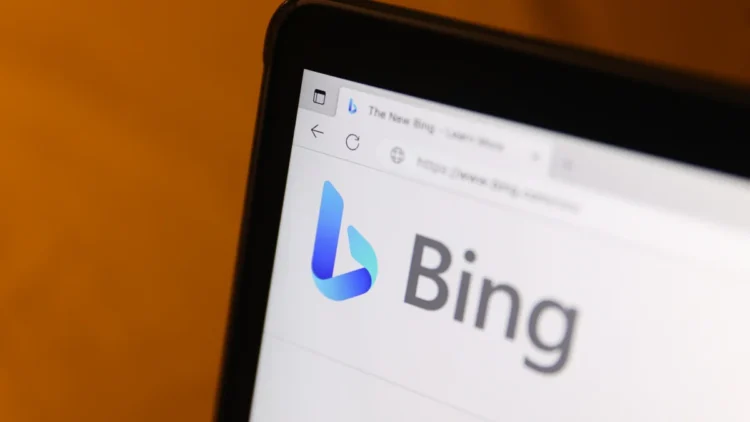Say Goodbye to Bing on Chrome

As a Chrome user, you may have noticed that Bing is no longer an option for your search engine. This change has been implemented by Google, who has decided to remove Bing from the list of default search engines on their browser. While this may seem like a small change, it has significant implications for both users and the tech industry as a whole. In this article, we will explore why Google is killing Bing on Chrome, how it will affect users, and what alternatives are available. So buckle up and get ready to say goodbye to Bing on Chrome!
Google is Killing Bing
It’s no secret that Google dominates the search engine market. In fact, it’s estimated that over 90% of all internet searches are conducted through Google. So it should come as no surprise that they’re taking steps to eliminate their competition, including Bing.
Google has recently announced that they will be phasing out support for the Bing search engine on their Chrome browser. This means that users who have set Bing as their default search engine will soon be prompted to switch to Google instead. While this may seem like a small change, it could have significant implications for both Bing and its users.
For years, Bing has struggled to gain a foothold in the search engine market, with many users preferring the accuracy and speed of Google’s results. By eliminating support for Bing on Chrome, Google is effectively cutting off one of the few remaining lifelines for Microsoft’s struggling search engine. It remains to be seen how this move will impact Bing’s already dwindling user base, but it certainly doesn’t bode well for the future of the platform.
Why is Google Doing This?
Google’s decision to remove Bing as an option on Chrome may come as a surprise to some users. However, it is not entirely unexpected given the fierce competition between the two tech giants. Google has been dominating the search engine market for years, and Bing has always been seen as a distant second.
By removing Bing from Chrome, Google is essentially eliminating one of its competitors in the search engine space. This move will allow Google to further solidify its position as the top search engine and increase its market share. Additionally, by limiting user options to only Google or other smaller search engines, Google can control what information users see and potentially increase their revenue through advertising.
While some may argue that this move is anti-competitive, it’s important to remember that Google is a business first and foremost. As such, they are constantly looking for ways to improve their bottom line and stay ahead of their competitors. Removing Bing from Chrome is just one way they are doing so.
How Will This Affect Users?
As a user of Google Chrome, you may be wondering how the removal of Bing as an option will affect you. The truth is, for most users, this change will have little to no impact on their browsing experience. Google has been the dominant search engine for years and most people already use it exclusively.
However, for those who do prefer Bing or use it for specific searches, this change could be frustrating. It means they will have to manually navigate to the Bing website or switch to a different browser if they want to continue using it. This inconvenience may seem small but can add up over time.
Overall, while the removal of Bing from Chrome may not drastically change your browsing habits, it is still important to consider the implications of such a move by Google and what it could mean for the future of search engines and internet monopolies.
What Will Google Gain from This?
It’s no secret that Google is the king of search engines, but why would they go out of their way to kill off Bing on Chrome? The answer is simple: profit. By eliminating Bing as an option on their browser, Google can ensure that users are utilizing their search engine and therefore generating more revenue for the company.
Google makes money through advertising, and the more people using their search engine, the more opportunities they have to display ads. By removing Bing as an option, Google can increase their market share and ultimately make more money. It’s a smart business move for them, but it may not be so great for users who prefer Bing or want to have multiple search engine options available.
It’s important to remember that at the end of the day, companies like Google are driven by profit. While it may seem unfair to some users, it’s simply a matter of business strategy. As consumers, we have the power to choose which products and services we use, so it’s up to us to decide if we’re willing to accept this change or seek out alternative options.
What Are the Alternatives to Bing?
As Google phases out Bing on Chrome, you may be wondering what alternatives are available to you. Fortunately, there are several search engines that offer similar features and functionality to Bing.
Firstly, there’s Yahoo! Search, which is powered by Bing’s search engine technology. This means that the results you get from Yahoo! Search will be very similar to those you would have gotten from Bing. Another option is DuckDuckGo, a privacy-focused search engine that doesn’t track your online activity or store your personal information.
If you’re looking for something a little different, you could try out Ecosia. This search engine uses its profits to plant trees around the world, so every time you use it to search the web, you’re helping the environment. Alternatively, if you’re interested in learning more about how search engines work and want to support an independent company, check out StartPage.
Ultimately, the decision of which alternative to choose will depend on your personal preferences and priorities. However, with so many great options available, saying goodbye to Bing on Chrome doesn’t have to mean sacrificing quality or convenience when it comes to searching the web.
Conclusion
In conclusion, the decision by Google to remove Bing as a search engine option on Chrome is a significant move that will have far-reaching consequences. While it may seem like a small change, it speaks volumes about the power dynamics at play in the tech industry. As users, we must be aware of these changes and their implications for our online experience. Fortunately, there are plenty of alternatives to Bing that we can turn to if we want to continue using Chrome as our primary browser. Ultimately, this move by Google is just one more reminder that the world of technology is constantly evolving and that we must stay informed if we want to make the most of it.
